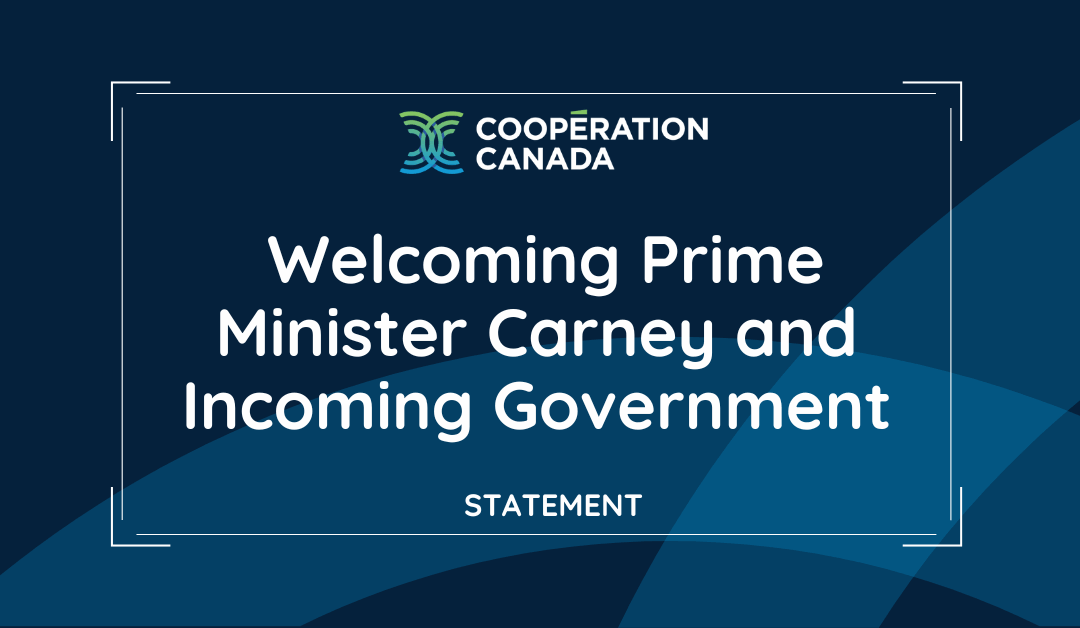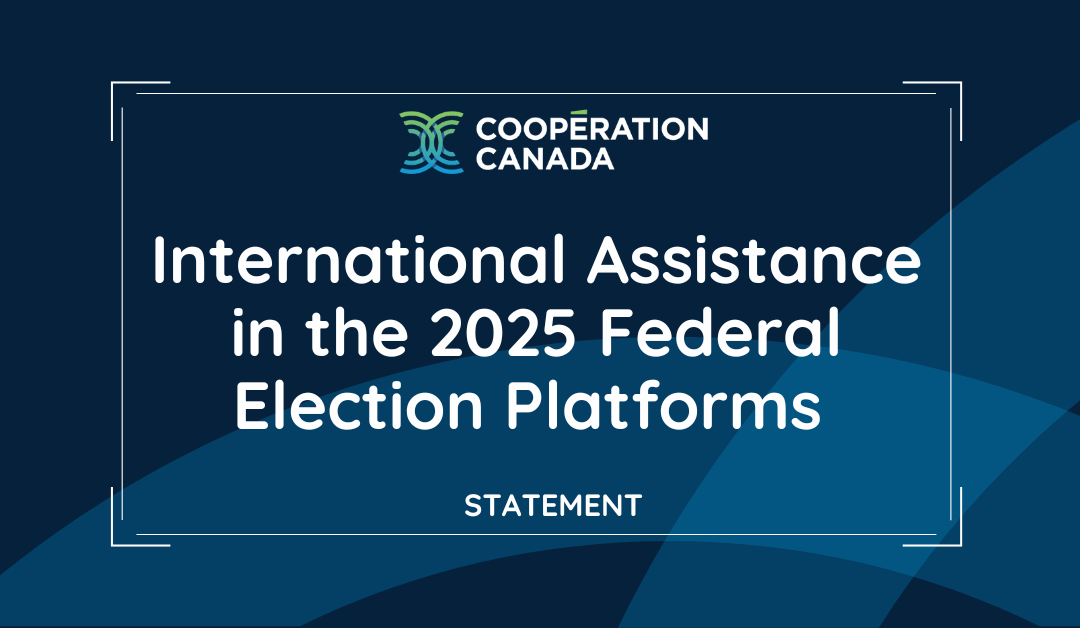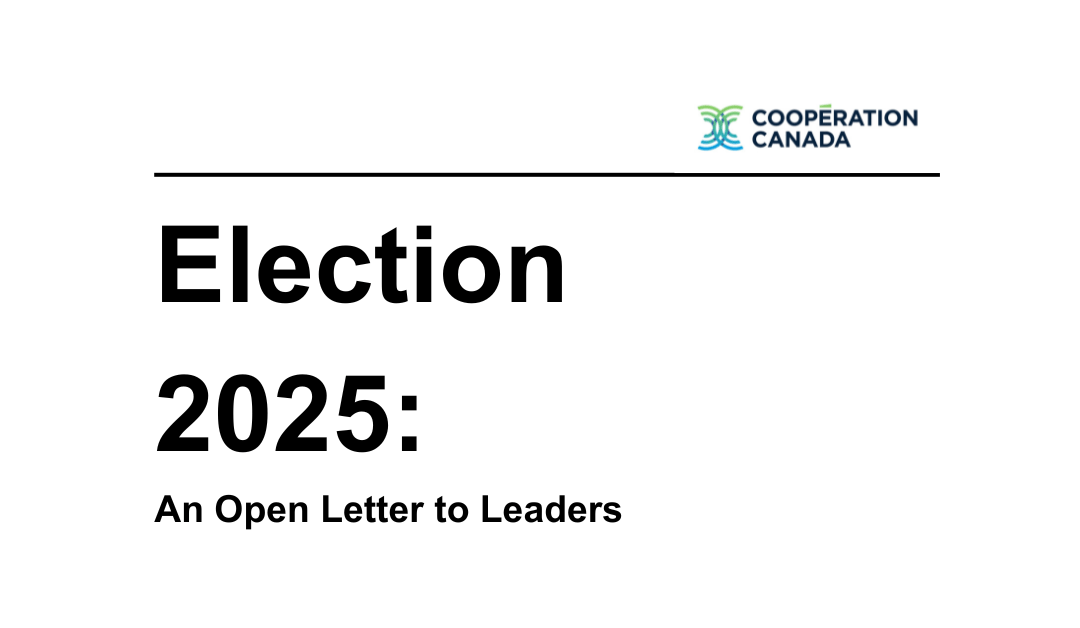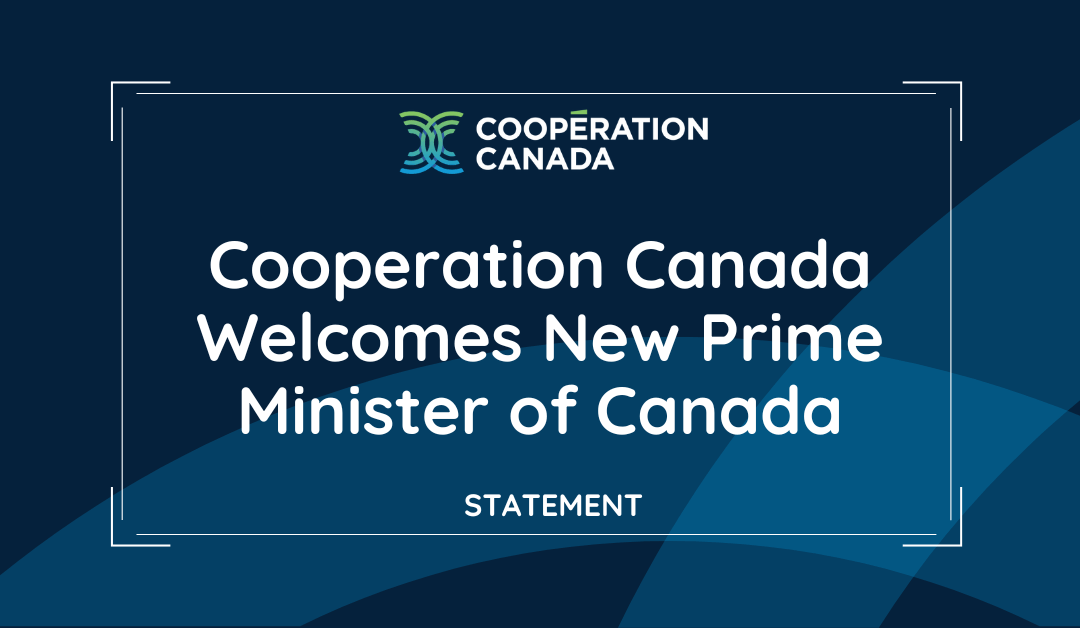
Cooperation Canada and Canadian Humanitarian and International Development Organizations Welcome Prime Minister Carney and Incoming Government
We congratulate Prime Minister Carney on winning the 2025 federal election and welcome the new government.
We welcome the commitment to a strengthened role for Canada on the world stage. We look forward to contributing to a forward-looking, robust and coherent foreign policy that leverages development as a key pillar of global engagement, alongside diplomacy, defence and trade.
We understand that economic concerns—including affordability and U.S. tariffs—will shape the immediate priorities of the new government. These challenges are real and urgent. However, Canada cannot afford to turn inward. Our global engagement is vital to our economic resilience, our security, and our international credibility.
We are encouraged by Prime Minister Carney’s commitments to international cooperation, including to humanitarian assistance, and continued leadership on gender equality, climate change and human rights.
At a time when others are retreating, Canada has the opportunity to reaffirm its position as a proactive, solutions-driven global actor. The evolving nature of global crises demands an agile, efficient and inclusive international cooperation system and financial architecture that can tackle global challenges. It must prioritize the resilience and needs of the most vulnerable communities around the world. It should support security, sustainability, equity and prosperity.
We stand ready to offer insights and solutions to the government on how to deliver values-driven and effective international assistance that maximizes impact, leverages Canadian expertise and shapes our collective future.
“In these challenging times, Canada has an unprecedented opportunity to lead with compassion and purpose,” said Kate Higgins, Cooperation Canada’s CEO. “As host of the G7 in 2025, Canada stands at a pivotal moment. This is our chance to step up and reaffirm our leadership on the world stage,” she said. “Canadian organizations look forward to working with the government and Canadian and global partners to create lasting solutions that address the world’s most pressing challenges and leverage strategic opportunities for influence and impact.”
Signatory organizations
Acted Canada
AidWatch Canada
Alberta Council for Global Cooperation
Alongside Hope – Auprès de l’espoir
Alternatives
Association québécoise des organismes de coopération internationale (AQOCI)
Atlantic Council for International Cooperation – Conseil atlantique pour la coopération internationale
Bigger Than Our Borders – Au-delà de nos frontières
British Columbia Council for International Cooperation (BCIC)
Canadian Association for Global Health – Association canadienne pour la santé mondiale
Canadian Feed The Children
Canadian Foodgrains Bank – Banque canadienne de grains
Canadian Network for Neglected Tropical Diseases (CNNTD) – Réseau canadien pour les maladies tropicales négligées (RCMTN)
CARE Canada
CAUSE Canada
Centre d’études et de coopération internationale (CECI)
Children Believe
Coady Institute, St. Francis Xavier University
CODE
Collaboration Santé Internationale
Compassion Canada
Crossroads International – Carrefour International
Cuso International
Development & Peace – Caritas Canada
Développement international Desjardins
Digital Opportunity Trust
Doctors of the World – Médecins du monde
Equality Fund – Fonds égalité
Farm Radio International – Radios rurales internationales
Fondation Paul Gérin-Lajoie
Food for the Hungry (FH) Canada
Grandmothers Advocacy Network – Mouvement de soutien des grands-mères
Habitat for Humanity Canada – Habitat pour l’humanité
Humanitarian Coalition – Coalition humanitaire
Humanité & Inclusion Canada
International Bureau for Children’s Rights (IBCR) – Bureau international des droits des enfants (BIDE)
International Centre for Human Rights Education (Equitas) – Centre international d’éducation aux droits humains (Equitas)
International Justice Mission Canada
Islamic Relief Canada – Secours islamique Canada
Jane Goodall Institute of Canada
KAIROS Canada
Kentro Christian Network
Lawyers Without Borders Canada – Avocats sans frontières Canada
Manitoba Council for International Cooperation
Mennonite Central Committee Canada – Comité central mennonite du Canada
Northern Council for Global Cooperation
Ontario Council for International Cooperation
Opportunity International Canada
Oxfam Canada
Oxfam-Québec
Plan International Canada
Presbyterian World Service & Development
Resilient Societies – Société résilientes
Results Canada – Résultats Canada
Right To Play International
Save the Children Canada – Aide à l’enfance Canada
SOCODEVI
Solidarité Union Coopération (SUCO)
Trade Facilitation Office Canada – Bureau de promotion du commerce Canada
The United Church of Canada – Église unie du Canada
UPA Développement international
VIDEA
WaterAid Canada
World Accord – International Development Agency
World Hope International Canada
World Renew
World Vision Canada – Vision mondiale Canada
World University Service of Canada (WUSC) – Entraide universitaire mondiale du Canada (EUMC)





